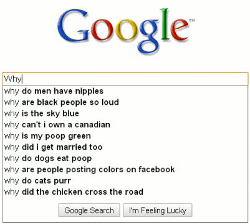
A thought came to mind today about the frequently very low attention span of Internet users. When they come to your website, you would probably like to fix that. I will share some thoughts and handy tips to help you do just that. First, let’s consider why it is this way, by looking at how we use the Internet, ourselves.
We often must scan through a lot of dis-interesting information in order to find what we seek, so we each do a lot of scanning when we use the Internet. Just considering all the advertisements we dodge on a daily basis, it is amazing that we ever find our way. Then, adding in the huge volume of obviously false, overtly misleading, and downright dishonest drivel, it really has our information filters working overtime.
It makes a lot of sense how we can become excessively dependent on a quick scan-and-click defense of our time. Let’s face it, most of what is on the Internet is worthless, offensive, or irrelevant to any given individual. The majority is just plain boring. Otherwise, we would want to read and fully absorb every link we can get our mouse on. Of course, this is all subject to the perspective of the reader. Even toupee maintenance and Acetaldehyde dehydrogenase will be interesting to somebody. Here comes my first tip: know who that interested “somebody” is. I’ll get back to that.
Once we find what we are looking for, we make a quick jab on the brakes and we slow down enough to try and learn something. What seems obvious, but is easy for many people to overlook, is that this scanning and filtering is not just something we do … our potential customers do it, too. That’s right, they are not so different in this respect, and it is entirely possible that you are not as immediately interesting to them as you could be.
Be More Interesting, to More People, More Often
This is a prominent goal of many marketing efforts, but being more interesting, to more people, more often is easier said than done. It comes with some challenges. If not, more people would drive down the street tossing hundred dollar bills out the window because their marketing made them so filthy stinking happy.
In the Internet marketing field, when somebody just pops in and takes off without reading, we call that scan-and-click ratio a “bounce rate“. I like to call it, a “Yawn Rate” … or the rate at which people encounter a big yawn and dismiss it as useless and boring. It usually happens within only a few seconds.
The “yawn rate” creates a great challenge for online content producers. Whether it is a product description for an ecommerce website, an “about us” page, or a blog article, it is a challenge that must be recognized in order to overcome it. I have some tips that may help, but there is still no perfect answer. If you intend to be astonishingly interesting every time, it will take practice … plus a good amount of magic.
Today, as I often do, I want to offer you some marketing ideas you can put to work immediately.
Sometimes It’s The Timing
Sometimes it is just the timing of your message that fails. Not that you created or released it at the wrong time, but that a reader has discovered it at the wrong time … for them. Maybe it just wasn’t what they needed right then, but maybe they will need it later. Be sure to make it easy and desirable for them to come back later.

If they don’t take action, at least you have tried to help them. It is pretty unlikely for them to go away horribly offended by your effort at continued communications. If so, their neurotic episodes probably extend to other areas of their life, too.
Sometimes It’s The Delivery
This is a tough matter for a lot of people. Most people are only a fraction as good at creating interesting or useful information as they think they are. Before you start feeling defensive about your website, consider asking for advice from others.
Have you ever watched a talent show like American Idol, X Factor, or So You Think You Can Dance? Much like the many humorous failed auditions that make these television shows so interesting, many people with a couple dozen visitors to their website think they have amazing marketing talent, and refuse to accept good advice.
Don’t take it personally if somebody offers you a suggestion. Ian Benardo thought he could sing and dance, so he refused to listen to criticism. Don’t be an Ian Benardo!
If you are willing to face the truth, ask somebody else for their unbiased opinion. Maybe you need to hire it out to a professional (usually the best option), or maybe you don’t. In either case, you should be willing to listen and accept good advice.
Fix Your Yawn Rate With Audio Feedback
This is a favorite, for me, and it is a staple of providing read-worthy information. Knowing the way somebody will read what you have to say can be invaluable. When people read your website, it is like a little voice in their head, silently speaking those words you produced. Shouldn’t you know how that quiet little voice sounds to them?
Reading comprehension is not the same for everybody. There is often a language barrier to overcome, even among readers of the same native language. Something I find helps me a lot is to hear my words in audio. If I don’t have my editor handy to read it aloud, I record it and listen to how it comes across. Many times, I find errors in the flow of material just by reading it aloud, but they come through even clearer when I record and then listen. Try reading your website aloud and pretend you are speaking to the person reading it. Does it sound awkward? Would you still express it the same way verbally, or would it be better to rephrase it?
I have found the value of using a conversational tone to be useful for decades, but it became even more obvious when I started providing all of my blog articles in both text and audio versions. If you try this tip and listen to your words, I think you will agree that it can be very beneficial. I believe it is much better to have somebody else read it to you, and I thank my lucky stars to have an awesome editor, but even if you are self-editing, it is worth the time to hear what you are saying before publishing it.

Don’t Pre-Judge or Dismiss Visual Appeal
I am a word guy, so I sometimes resent the fact that a picture can say things I cannot say. Well, I guess I could say those things, but if a picture is worth a thousand words, as they say, my blogs would be even longer … and that may seem impossible, but it is true.
Visuals count, and as much as I stomp my feet and pout about it, they still have a strong value in making the information you share more interesting. I often consider this one of the hardest parts of producing website content. I guess that is because the words come a lot easier than hunting down a cool graphic to represent those words. It is worth it, and I think of it like setting the tone of that voice I explained. Be creative with this and see what happens. I think you may be surprised how much it can help grab and keep a reader’s attention.
Do You Feel More Interesting Yet?
Far beyond the suggestions I made here, it is critical to understand that everybody is not your best audience. In fact, I highly recommend reading the article titled “Everybody is Not Your Target Market!” to emphasize the point. They will not all love what you are promoting, and some people may even dislike it very much. That’s a good thing, because the ones who do like it will probably like it even more.
You will never get it perfect, and there is always room for improvement. It can take a lot of effort and adjustment to make it optimally effective, but isn’t it worth it? When you get it all just right, you will find that more people will read to the very end … and that’s when they take action on your words. Don’t we all want that?
What do you have to say about this? Do you have suggestions, or did you like my ideas? Please take a moment to express it.
Photo Credits:
Yawn. by Michael Lemmon via Flickr
A Big Yawn by Mark Robinson via Flickr
Yawn by Linda via Flickr
Podcast: Play in new window | Download









